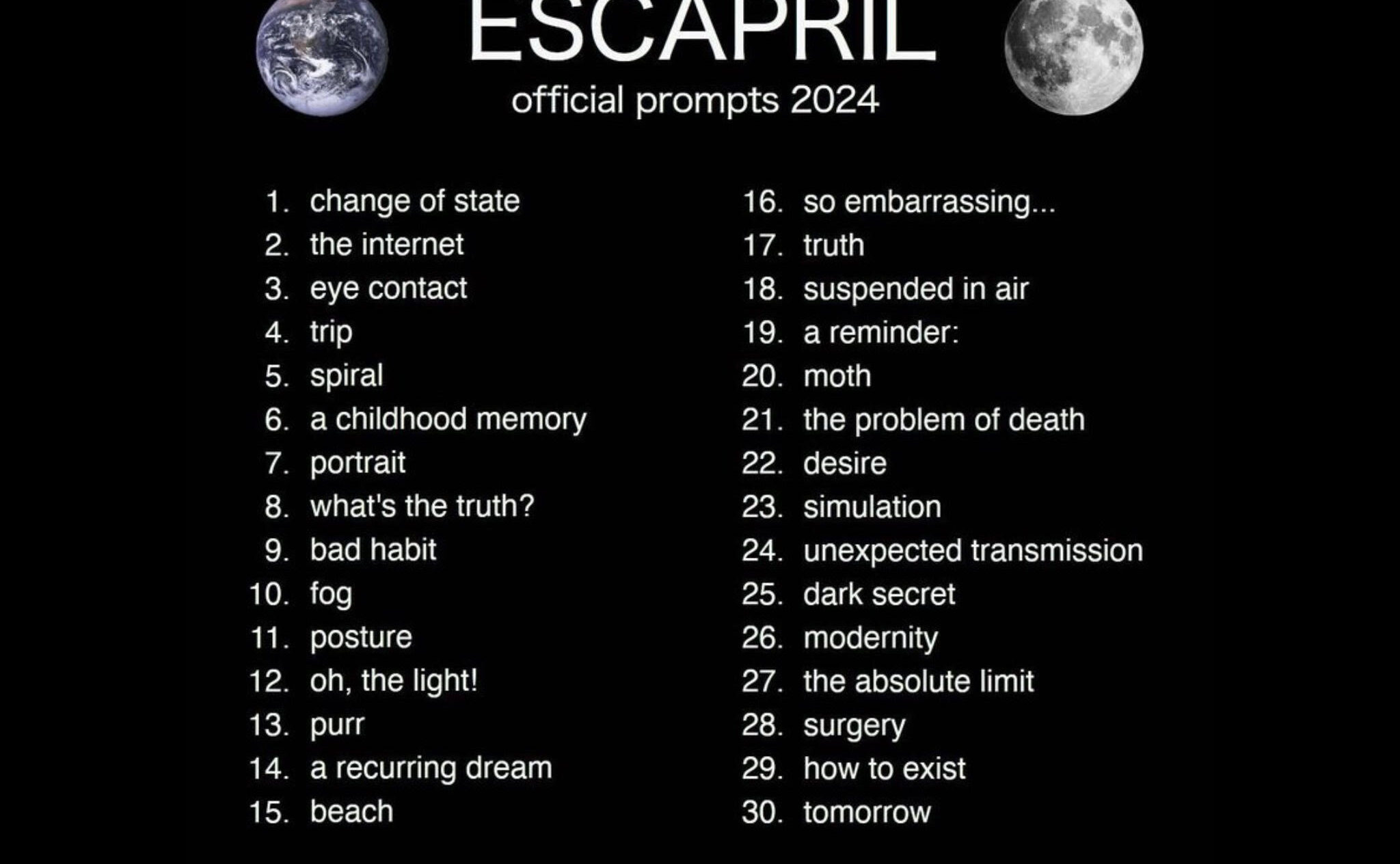By Dimitra Gatzelaki,
On March 21st, the world came together to celebrate World Poetry Day, paying homage to the profound influence poetry has in our lives. This celebration invites diverse expressions, from writing one’s own poetry to sharing their favorite poems with others, reading, or even translating them into one’s mother tongue to make them more accessible. It undoubtedly warrants ongoing recognition and celebration, as it renders poetry visible across cultures and generations.
Therefore, after World Poetry Day comes National Poetry Month. This “tradition” was established in the US by the Academy of American Poets in 1996, which designated April as the month to honor and cherish poetry, to read and write it, and to be inspired by its never-ending luminosity. With this as her starting point, poet Savannah Brown (@savbrown on Instagram) “birthed” the Escapril poetry challenge in 2019.
But what is this challenge, exactly? To get a clue, we might have to look at its name etymologically. “Escapril” is evidently an amalgamation, or a blending, of the words “escape” and “April.” So, the whole concept signals some kind of April escape. And that escape takes shape, “crystallizes” through poetry. Essentially, Escapril is a month of poetry prompts curated by Brown, with the aim of “[inspiring] poets and [providing] them with a sense of community” (The Luna Collective).
Every year, a little before April, Brown uploads a list of prompts in the @escapril Instagram account, which are meant to be the starting point in kindling a poet’s imagination and serve as a match to their artistic impulse. These prompts range from relatively simple, straightforward ones like “skin” or “blush” (included in last year’s challenge) to deeper, more intricate concepts like “artificial intelligence” or “muscle memory”. For me, what gives the concept of prompts this curious charm is precisely the subjective nature of poetry. As the poet is the core and heart of this challenge, diversity is a given. The prompt “blush” will undeniably elicit different lines from an artist (it’s a color, after all) than from a high-school student caught up in their love life, just as a doctor and a dancer will conceive of “muscle memory” very differently. And that’s what gives Escapril its beauty: the simplest of words, a string of letters arranged in a row, births myriads of poems, each unlike the other.

To delve deeper into this, in an interview with The Luna Collective, Brown gave some insight into her thought process while picking out prompts. “[They] always take a while to put together”, she says. “Instead of being like, ‘I want to read a bunch of poems about this topic,’ I spend time considering what will inspire people, or what ideas might be more challenging to explore”. However, Brown does acknowledge the subjectivity inherent in this process, admitting that “I guess the prompts always align a bit with my interests no matter what, as I can’t think about what I can’t think about”.
This year, as in every previous year, the prompts of Escapril are half-wrought, enigmatic, beckoning (perhaps daring) one to pick up their pen and write. For me, this beckoning lies more precisely in the prompts “fog”, “unexpected transmission”, and “the absolute limit”. Of course, some of these prompts flood my mind with images and emotions that long to be etched on a page, while others fail to inspire me. And that’s normal. The promise (and beauty) of Brown’s challenge lies in its freedom: you can write a piece on a prompt, then skip the next three, five, or ten. It’s about participating on your own terms, giving to it only when you have something to give, or when something in you calls to be let out. It’s what poetry is meant for.
Reference
- Spotlight: Exploring the Intimacy of Privacy, Savannah Brown Talks “The Things We Don’t See,” Social Media & More. The Luna Collective. Available here




